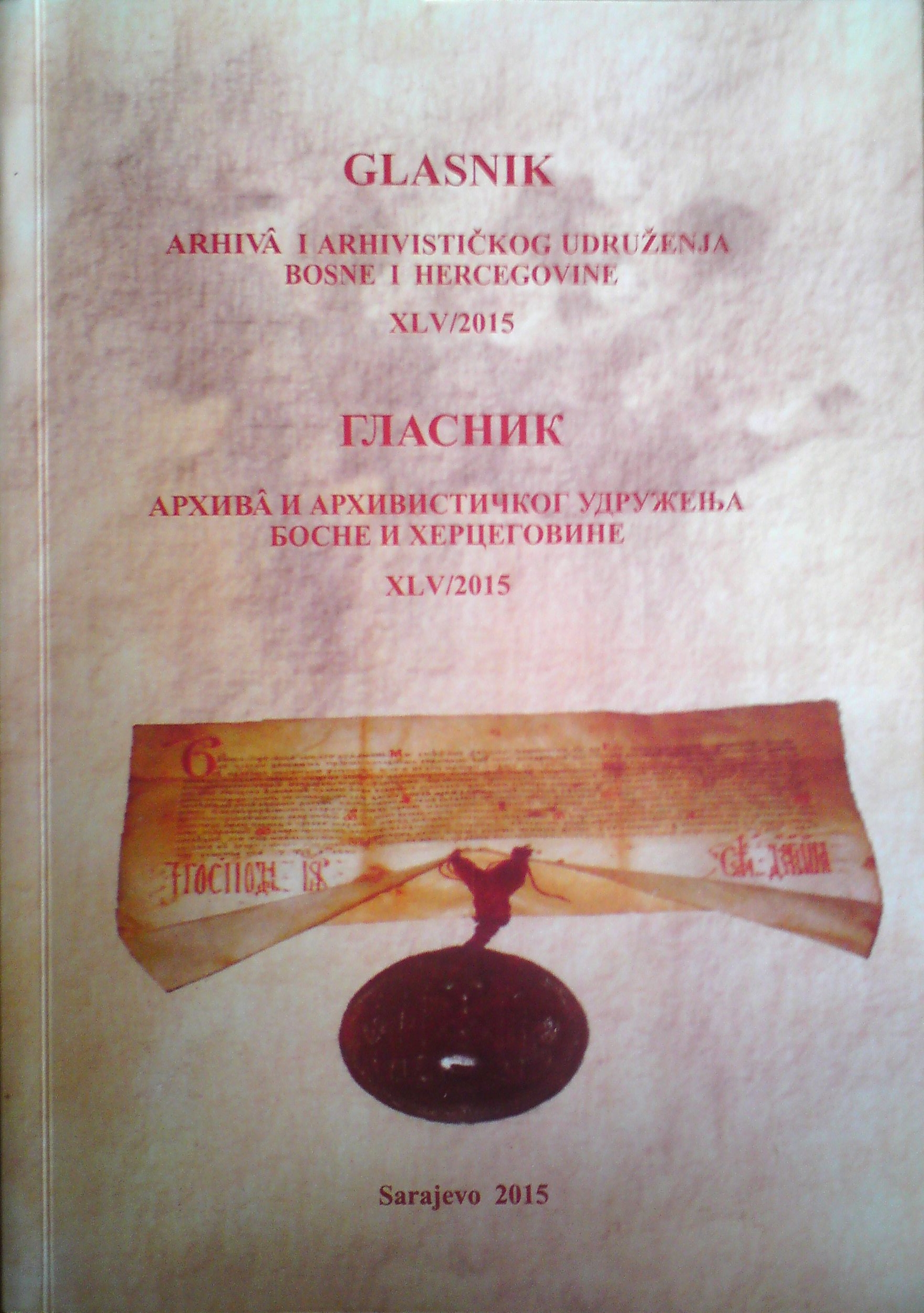OČUVANJE AUTENTIČNOSTI ARHIVSKOG GRADIVA U
ELEKTRONIČKOM OBLIKU
PRESERVATION OF AUTHENTICITY OF ARCHIVAL RECORDS IN ELECTRONIC FORM
Author(s): Ljerka VukSubject(s): Archiving, Classification, Preservation, Electronic information storage and retrieval
Published by: Arhivističko udruženje Bosne i Hercegovine AUBiH
Keywords: Information object; information systems; digital/digitized material; preservation of authenticity; OAIS model;
Summary/Abstract: There is established misconception that all that exists exclusively in electronic form, automatically has less historical, cultural or political significance compared to the traditional paper format. In the beginning of the use of digital technology, it was really so. No one dared to create and keep essential documents in a such abstract form. Since then decades passed and even though it is impossible to ignore and underestimate the electronic heritage, it still has the second-class status and a large part of this material has already disappeared. Fifteen years ago, the laws to regulate this problem have begun to adopt but their implementation is still slow and incomplete. Apparently, it is necessary to raise another generation that will culturally perceive electronic archive as something of importance, completely equal to the traditional conceptions of archives. The management of digital documents base is easy and fast, but to archive documents in that manner requires a lot of knowledge and hard work. It is necessary to keep track of all the technological changes that occur in cycles of five years, and as time goes by, that period became shorter and shorter. As time went on, so will the electronic records in an increasing extent to trickle to the archives. Electronic material, because of continuing changes in computer programming environment quickly becomes unstable and its availability and authenticity is threatened. Therefore, it is necessary to migrate such material to a new generation of media, or in the contemporary record format, or both. In the case of electronic documents that have been signed by advanced electronic signature and with a qualified certificate, the long-term preservation of the authenticity does not exclusively depend on Archives in which it is stored, but also on infrastructure that serves as a support for proving the authenticity of such archival records. Today we can conclude that the question of long-term preservation of authenticity, reliability, integrity and usability of archived digital material is central issue of modern archival science. During migration, which should be planned, there may be situations in which the authenticity, reliability, integrity and usability can become questionable, or for example, the authenticity can not be proven anymore. Without constant refreshing of personal knowledge about the profession and concepts that are increasingly influence it, archivists will not be able to adequately respond to the challenges of long-term preservation of electronic material.
Journal: Glasnik arhiva i Arhivističkog udruženja Bosne i Hercegovine
- Issue Year: 2015
- Issue No: 45
- Page Range: 182-203
- Page Count: 22
- Language: Bosnian

